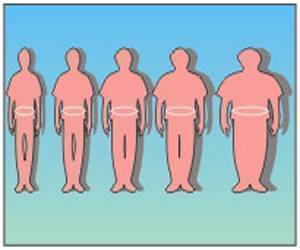A person's fitness cannot be judged by their weight alone, as individuals with severe obesity or a BMI greater than 40 can be physically fit and healthy.
Highlights
- Individuals with severe obesity or a BMI greater than 40 can be physically fit and healthy
- Individuals with severe obesity are more likely to develop high blood pressure, glucose, and triglycerides if their fitness level is lower than 20 percent
- The above-mentioned risk factors can be avoided if individuals have an 80 percent of fitness level
Fat but Fit
Individuals with severe obesity who are fit have a similar health profile to those who weigh significantly less than them.
This study aimed to analyze the benefits of cardiorespiratory fitness on cardiovascular health in the population with mild to severe obesity.
The results revealed that individuals with even severe obesity or those with a BMI greater than 40 could be physically fit and healthy.
Kuk said that exercising for about 150 minutes every week, according to physical activity guidelines can reduce less than half a pound of weight loss. However, this amount of exercise can bring about drastic improvements in health for those individuals with severe obesity.
The data was collected from 853 Canadian patients who were attending Wharton Medical weight management clinics, Southern Ontario.
These patients completed a clinical exam including fasting blood glucose levels and a maximal treadmill stress test.
The amount of fitness required to achieve health benefits was far less than what is usually thought by most individuals.
Benefits of Exercise can outweigh Health Effects of severe Obesity
The results revealed that most significant health benefits come from avoiding the lowest 20 percent of fitness levels, which means that 80 percent of people can be fit enough to get health benefits.
In this study, 41 percent of participants with mild obesity were found to have high fitness levels. On the other hand, 25 percent and 11 percent of the participants with moderate and severe obesity were also found to have high fitness.
Individuals with severe obesity are more likely at the risk of developing high blood pressure, glucose, and triglycerides if their fitness level is in the lowest 20 percent. However, these risk factors were found to be uncommon if they had an 80 percent of fitness level.
In previous studies, less physical activity is required to improve health when compared to losing weight. However, this is the first research study that suggests that physical activity is more important for individuals with severe obesity.
Wharton says, "In my practice, I see many patients who are looking for different results. There are some patients that want to significantly improve their health and others that are only looking for an aesthetic goal. When it comes to health, this study reinforces the notion that people don't need to lose weight to be healthy."
Benefits of Exercise
Exercise is any physical activity, which enhances the overall fitness of the body. A good balance between a healthy diet and exercise for maintaining fitness and a life free of diseases need to be maintained.
Regular exercise helps increase muscle strength. A healthy body houses a sound mind, which in turn, gives one an optimistic approach to life.
Moderate but regular aerobic exercises such as walking, swimming, gardening, and dancing can help obese individuals lose weight, provided that it does not exceed their cardiovascular capacity as well as muscle strengthening, bone strengthening and stretching.
Regular exercise reduces the demand for medication by 20% in people with diabetes and checking the blood glucose levels before and after exercise can be a motivator to continue the exercise regimen.
Source-Medindia















